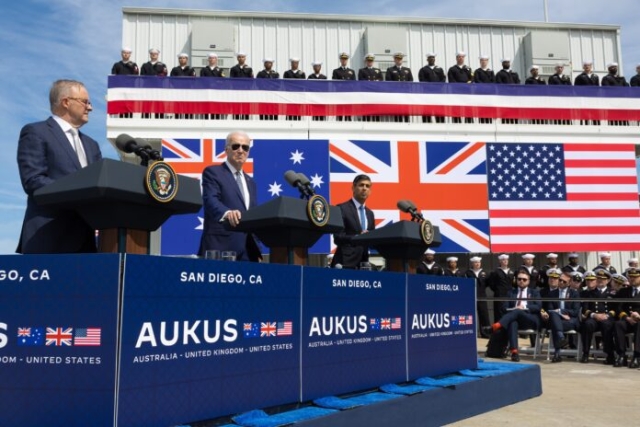AUKUS Countries Detail Export License Removals for Defense Manufacture
These proposed changes aim to create a license-free environment for defense-related exports among the three countries

Australia, the United Kingdom, and the United States have jointly proposed significant changes to their national export control exemptions to facilitate defense industry collaboration within the AUKUS partnership.
These proposed changes aim to create a license-free environment for defense-related exports among the three countries, promoting enhanced cooperation in scientific, technological, and industrial capabilities.
Australia aims to streamline its defense export processes by eliminating the requirement for about 900 export permits annually, valued at $5 billion (AUD), particularly for exports to the U.S. and U.K. Similarly, the United Kingdom plans to remove approximately 200 export permits per year, totaling over $129 million (AUD), necessary for defense exports to Australia. In turn, the United States intends to facilitate license-free trade for more than 70% of defense exports governed by the International Traffic in Arms Regulations (ITAR) and over 80% of defense trade subject to Export Administration Regulations (EAR) when exporting to Australia. These changes seek to enhance efficiency and reduce regulatory burdens in defense trade across these nations.
Stakeholders from diverse sectors, such as industry, higher education, and research, are encouraged to engage in the public consultation concerning the proposed alterations. This consultation period, focused on the Defence Trade Legislation Amendment Regulations 2024 (DTL Amendment Regulations), is scheduled to remain open until May 31, 2024, providing an opportunity for interested parties to contribute feedback and insights.
Additionally, alongside these proposed changes, the U.K. has released amendments to its open general export licenses, and the US has introduced amendments to the International Traffic in Arms Regulations (ITAR), both open for public consultation.
This collaborative effort among AUKUS partners underscores a shared commitment to strengthen defense industry collaboration and foster innovation in defense technology across international borders. The proposed changes aim to streamline regulatory processes and remove barriers to trade, ultimately enhancing the collective defense capabilities of the partner nations.













